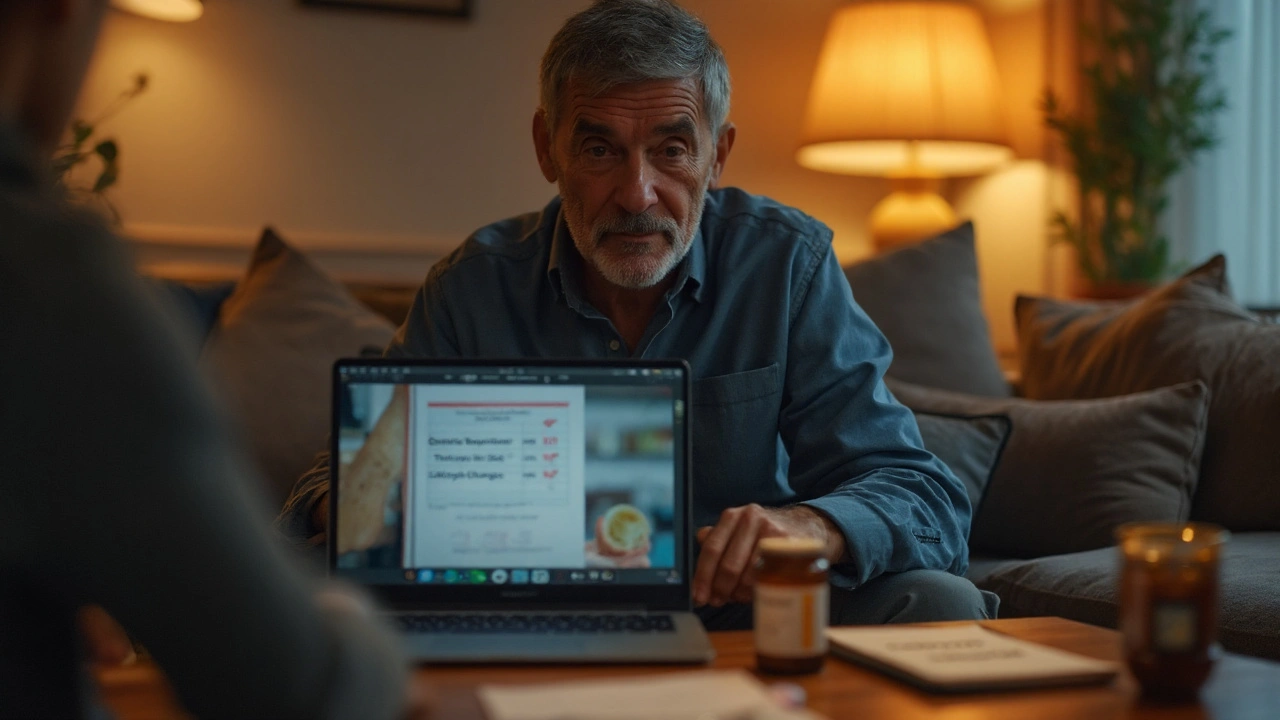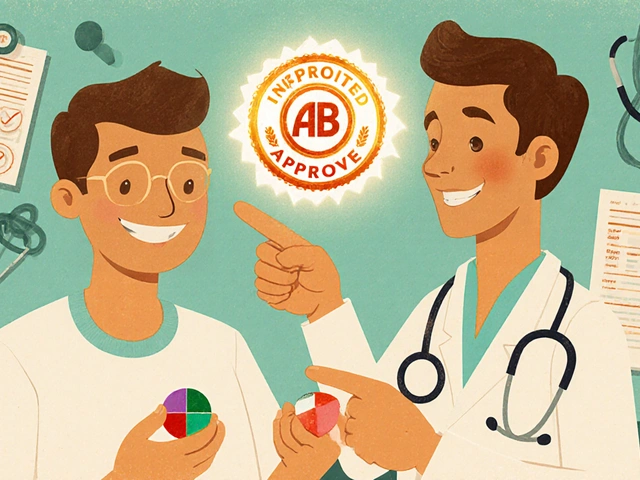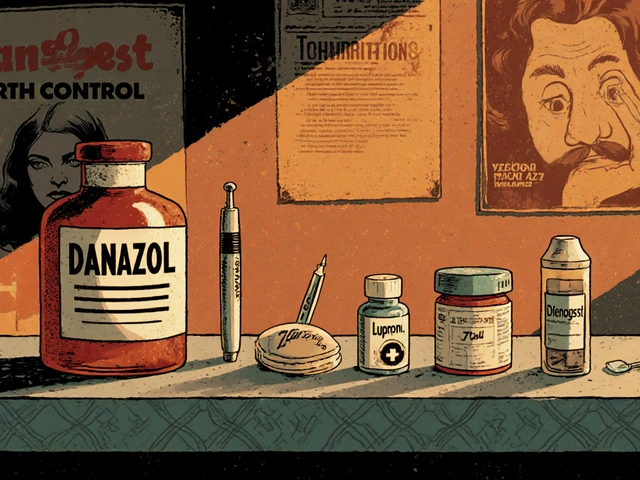You want the lowest legal price on generic bupropion, delivered fast, without getting scammed or stuck in red tape. Here’s the short version: in the UK, bupropion is prescription-only, prices vary a lot by route, and the “too cheap to be true” sites are usually illegal or unsafe. If you know which version you actually need (SR vs XL), where it’s licensed, and how to spot a registered online pharmacy, you’ll save money and avoid a headache.
What you’re buying: benefits, specs, and UK licensing reality
Bupropion is used for two main things: helping people stop smoking and treating depression. The catch in the UK? The smoking-cessation version (Zyban; sustained-release 150 mg) is licensed and widely available. The antidepressant versions (often called Wellbutrin SR/XL) are not routinely licensed for depression on the NHS here, though some private providers supply imported XL formulations. That single detail changes how and where you can buy it-and what it costs.
Quick specs you actually care about:
- Name: bupropion hydrochloride (branded as Zyban for smoking cessation; Wellbutrin in other countries for depression)
- Release types: SR (sustained-release) 150 mg; XL (extended-release) 150 mg or 300 mg
- UK licensing: SR 150 mg for smoking cessation is licensed; XL/antidepressant use is mainly private/import routes
- Typical course: smoking cessation: around 7-9 weeks under a clinician’s plan; depression courses vary by clinical judgment
- Common side effects: insomnia, dry mouth, nausea, headache, anxiety, tremor; less common but serious: seizures (dose-related), blood pressure increases, mood changes
Two must-know safety points:
- Never crush or split SR/XL tablets-doing so spikes the dose and raises seizure risk.
- Avoid if you have a seizure disorder, a current or past eating disorder (bulimia/anorexia), are on monoamine oxidase inhibitors (or within 14 days of them), or are abruptly stopping alcohol/benzodiazepines. These are standard contraindications in MHRA materials.
Why go generic? It’s bioequivalent to brand when correctly licensed, and it’s usually the cheapest legal option. If your goal is to buy online cheap generic bupropion, you’ll likely be looking at UK-registered online pharmacies for Zyban (SR 150 mg) or private clinics that can legally supply an imported XL product where clinically appropriate.
UK prices in 2025: what’s “cheap,” what’s realistic, and how to pay less
Here’s what you can expect to pay in the UK right now. Prices vary by pharmacy, pack size, and whether you’re getting NHS or private supply. Since I’m in Manchester, I see the same pattern online and on the high street: small packs look cheaper but cost more per tablet; larger packs and generics usually cut the unit price.
- Generic bupropion SR 150 mg (Zyban-equivalent) via UK online clinic: roughly £35-£60 for ~28-30 tablets; £70-£120 for ~60 tablets. Some include the online consultation fee; some don’t.
- Private XL (150/300 mg) for depression (imported/specials): expect higher prices-commonly £60-£120 per month depending on dose and supplier. Private prescribers may add consultation fees.
- NHS: prescription charges apply unless you’re exempt. Smoking cessation support is often subsidised via NHS stop smoking services; ask your local service for current pathways.
- Delivery: Royal Mail Tracked 24/48 is the norm; 1-3 working days. Same-day courier exists in some cities, usually at a premium.
What actually drives cost:
- Pack size: 60-tablet packs usually reduce per-tablet cost versus 28-30 tablet packs.
- Whether the online clinic bundles the prescriber review fee or bills it separately.
- Release type: SR (UK-licensed) tends to be cheaper and simpler to source than XL (private/import route).
- Branding: generic is usually cheaper than brand.
Use this table to pick the best route for your situation:
| Route (UK) | Prescription needed? | Typical 2025 price | Delivery speed | Best for | Watch-outs |
|---|---|---|---|---|---|
| NHS (stop smoking service / GP) | Yes | NHS charge or exempt; often low cost | Same day to a few days | Lowest cost if eligible; coaching support | Eligibility criteria; availability varies locally |
| UK-registered online pharmacy (SR 150 mg) | Yes (often via online assessment) | ~£35-£60 (30 tabs), £70-£120 (60 tabs) | 1-3 working days | Convenience; competitive pricing | Check clinic fee; confirm GPhC registration |
| High-street pharmacy (private Rx) | Yes (paper or electronic) | Similar to online; sometimes higher | Immediate if in stock | Face-to-face advice; instant collection | Stock for XL/imports may be limited |
| Private prescriber + imported XL | Yes (private) | ~£60-£120+ per month | 2-5 working days | Antidepressant use when appropriate | Higher cost; confirm sourcing and licensing route |
| Overseas "no-Rx" websites | No | Looks “cheap,” often risky | Unreliable | None | Illegal supply, counterfeit risk; avoid |
Ways to bring the cost down without cutting corners:
- Go generic and go bigger: a 60-tablet pack usually beats two 30s on price per tablet.
- Use a UK-registered online pharmacy that includes the prescriber’s assessment fee in the price.
- If you’re quitting smoking, tap your local NHS stop smoking service. They often pair medication with behavioural support, which improves success rates and keeps costs low.
- Avoid international “no prescription” sites. Confiscation, fakes, and wasted money are common. MHRA and GPhC warn against these for a reason.

Risks, interactions, and how to stay on the safe side
Bupropion has a known seizure risk that rises with higher doses, rapid dose changes, and specific risk factors. UK regulators (MHRA) and clinical guidance emphasise careful screening. Here’s the practical safety checklist.
Do not use bupropion if you have or had:
- Seizure disorder or a history of seizures
- Current or past bulimia or anorexia nervosa
- Use of an MAOI in the last 14 days
- Sudden alcohol or benzodiazepine withdrawal
Use caution and medical supervision if you:
- Have bipolar disorder, psychosis, or severe anxiety
- Have uncontrolled hypertension or significant hepatic impairment
- Are pregnant or breastfeeding (risk-benefit discussion needed)
Key interactions to know about:
- Bupropion is a CYP2D6 inhibitor. It can raise levels of some antidepressants, antipsychotics, beta blockers, and pain meds. Tamoxifen effectiveness can drop when combined with strong 2D6 inhibitors.
- CYP2B6 inducers/inhibitors can alter bupropion levels. Your prescriber will screen for this.
- Other drugs that lower the seizure threshold (for example, some antipsychotics, tramadol, quinolones) increase risk.
Side-effect management tips:
- Insomnia: take the last dose early in the day; avoid evening dosing.
- Dry mouth: sugar-free gum or lozenges usually helps.
- Nausea: light food with doses often reduces it.
- Blood pressure: check at baseline and periodically, especially if you have hypertension.
Alcohol: keep it light or avoid. Heavy use raises seizure risk and can worsen mood swings. This is standard advice from NHS/MHRA materials.
Mood and suicidality: all antidepressants carry warnings about mood changes. Seek urgent help if you notice sudden agitation, suicidal thoughts, or major behaviour shifts-especially in the first weeks or after dose changes.
Nearest alternatives: when they’re smarter or cheaper
For stopping smoking:
- Varenicline (now available as generics in the UK again): often first-line due to strong quit rates. Private pricing is usually higher than bupropion, but it can be cost-effective with NHS support.
- NRT (patches, gum, lozenges, inhalators): flexible, OTC, and often subsidised by local services. Combining a patch with a short-acting NRT (like gum) can match or beat single-agent therapies.
- Bupropion SR: good for some who don’t tolerate varenicline or who prefer its profile. Cost is mid-range via private online clinics.
For depression (UK context):
- SSRIs (e.g., sertraline, citalopram) are first-line per common UK practice and NICE guidance. They’re cheap generics via NHS.
- Bupropion XL for depression is mostly a private/import route in the UK and costs more. It can be useful when energy, focus, or sexual side effects from SSRIs are a concern, but it requires a prescriber who knows the UK licensing landscape.
- Augmentation options (e.g., bupropion added to an SSRI) must be handled by a clinician due to interaction and seizure risk.
Rule of thumb decision cues:
- If quitting smoking and you want the fastest legal online option: UK-registered online pharmacy with an integrated prescriber for SR 150 mg.
- If you’re price-sensitive and eligible: NHS stop smoking services often win on cost and outcomes.
- If you’re treating depression in the UK: talk to a GP or private psychiatrist first. You’ll likely start with an SSRI; bupropion XL is a private discussion if needed.

How to buy legally online (step-by-step), red flags, FAQ, and next steps
Here’s the clean, legal way to buy online in the UK today.
- Decide your indication. Smoking cessation (SR 150 mg) is the straightforward UK-licensed route. Depression use typically means private/import XL and a prescriber who’s comfortable with that.
- Pick a UK-registered online pharmacy. Look for GPhC registration and the MHRA EU/UK logo. Check they have a named prescriber. Read recent customer reviews for delivery reliability.
- Complete the online consultation. Answer honestly about seizures, eating disorders, BP, alcohol, medicines, and mood history. This is how you stay safe and get approved quickly.
- Compare pack sizes. If you’ll use it for several weeks, the 60-tablet pack often saves money.
- Choose delivery. Tracked 24/48 is standard. If timing matters, order before the pharmacy cutoff and pick Tracked 24.
- On arrival, check the packaging. You should see the product name, strength, batch number, expiry date, and a patient information leaflet in English.
Red flags-close the tab if you see any of these:
- No prescription required for bupropion. In the UK, it’s prescription-only.
- No GPhC registration number or no named prescriber.
- Wildly low prices compared to UK averages, or offers to ship “from abroad” with no checks.
- No UK contact details, no returns policy, no leaflet.
Mini‑FAQ
- Do I need a prescription? Yes. MHRA classifies bupropion as prescription-only medicine.
- Is generic as good as brand? When licensed and dispensed correctly, yes-bioequivalent to brand.
- How fast does it work for smoking? People usually set a quit date in week 2. Your clinician will guide the schedule.
- Can I drink alcohol? Keep it minimal or avoid; alcohol raises seizure risk.
- Is it for weight loss? Not bupropion alone. A separate product (bupropion+naltrexone) is licensed for weight management; different rules and screening apply.
- What if I can’t sleep? Take doses earlier in the day and avoid evening caffeine. If it persists, speak to the prescriber.
- Can I switch SR to XL or vice versa? Only under a prescriber. Release forms aren’t interchangeable milligram-for-milligram.
Next steps and quick troubleshooting
- I want the cheapest legal option to quit smoking: Check your local NHS stop smoking service today. If you prefer online speed, use a GPhC-registered online pharmacy with an integrated consultation and compare 30 vs 60 tablet pricing.
- I need antidepressant treatment and think bupropion fits me: Book a GP or private psychiatrist. Discuss first-line options and whether XL bupropion is appropriate privately in the UK.
- I have seizure risk factors or an eating disorder history: Don’t self-start. Talk to a clinician; bupropion is contraindicated.
- I’m on multiple meds: Share your full list. Because bupropion inhibits CYP2D6, doses of some meds may need adjusting.
- I need it fast: Order before the pharmacy’s cut-off and choose Tracked 24. Consider local collection if available.
- Money’s tight: Choose generic, larger packs, and NHS routes if eligible. Avoid “no-Rx” sites-they’re a false economy.
Ethical call to action: Use a UK-registered online pharmacy or NHS pathway, complete a proper clinical assessment, and only buy prescription medicines when they’re prescribed for you. That’s how you get a fair price, real stock, and a safer outcome.
References for credibility: The MHRA classifies bupropion as prescription-only; NICE and NHS materials cover tobacco dependence treatments and antidepressant pathways; prescriber guides highlight seizure risk, contraindications, and CYP interactions. If you want to read the full details, search MHRA Drug Safety Updates, NICE guidance on tobacco dependence and depression, and the patient leaflet supplied with your medicine.







Write a comment
Your email address will be restricted to us